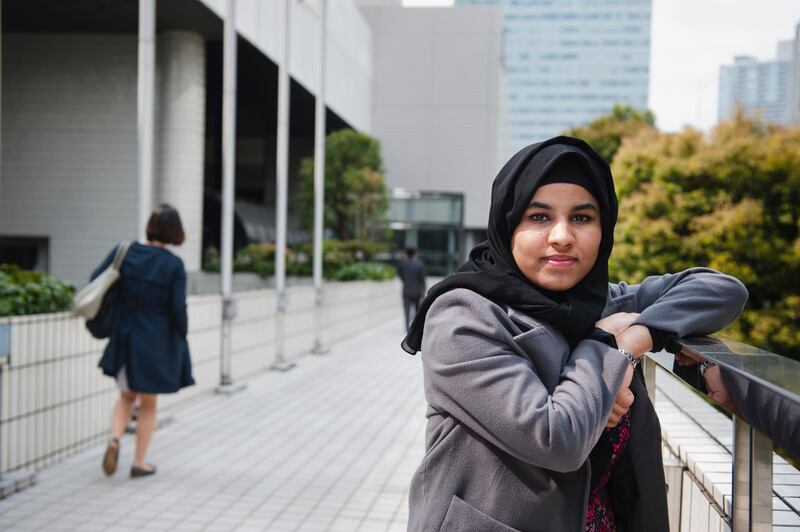The number of Emirati students studying in Japan has more than doubled in a few years.
Since the Japan International Cooperation Centre (Jice) opened an office in Abu Dhabi in 2013, the number of students taking degree and non-degree programmes rose from 102 in 2013 to 263 people last year.
The increase is expected to continue this year thanks to the many outreach activities run by Jice throughout the year.
Some of these include taking part in the UAE’s university fair, Najah Abu Dhabi, held last month at the Abu Dhabi National Exhibition Centre, as well as an annual study tour. It was launched in 2014 between the Abu Dhabi Education Council and the centre, supported by the Japanese Ministry of Economy, Trade and Industry.
As part of the tour, nine Emirati high-school students, all of which scored grades of over 90 per cent in each subject of their Year 11 studies, were selected to visit Japan in late September.
They were able to visit three renowned Japanese universities including the Tokyo Institute of Technology, the University of Tokyo and Tohoku University.
These students also attended Japanese language classes in Tokyo, visited the northern city of Sendai as well as the Sendai-Nika High School where they met Japanese peers and made a presentation on Emirati culture and school life in the UAE.
“It was a great opportunity for us to not only find out more about what these top Japanese universities can offer Emirati students, but also to see and experience Japanese culture and society first hand,” said Thani Almuhairi, a Grade 12 student from Al Ittihad High School in Abu Dhabi who took part in the study tour.
“I was also amazed by the Japanese high school students and their level of interest in our culture and Emirati high school life.
"The visits to the universities were very informative and I am now considering studying engineering at one of these Japanese universities due to the great academic levels and interaction provided by the professors with the students.”
Other cultural elements of the mission included visits to the Japanese National Museum of Emerging Science and Innovation, the Edo-Tokyo Museum and Tokyo’s historical district of Asakusa.
“Japan is a great choice for students who want to study in the various fields of engineering, information technology, business, social science, arts and design,” said Munehiro Mishima, the centre’s general manager in Abu Dhabi.
“There are a lot of courses in Japanese universities which are taught in English, as well as short study programmes for those who want to try studying in Japan first.
"The office is here to assist students and families with selecting the right Japanese universities and courses for their interests and needs, as well as assisting with application processes and possible scholarship opportunities.”
Last month, representatives from six of Japan’s leading universities, including Ritsumeikan Asia Pacific University, Tokai University, Kindai University, Tokyo City University, Yokohama National University, Joshibi University of Art and Design and the Japanese Language Education Centre of Japan Student Services Organisation took part in this year’s Najah education fair.
Founded in Tokyo in 1900, Joshibi University is the first institution in Japan which opened the gate of art education for women with the aim of empowering them to achieve independence through the arts. It is still the only woman-only art university in Japan.
For 117 years, the university produced more than 70,000 talented female artists, designers and educators. Among them are artists who contributed to the history of Japanese modern art and designed popular characters such as Hello Kitty, Cinnamoroll, Gudetama and Rilakkuma.
“We are excited to introduce these leading Japanese universities to students in the UAE,” Mr Mishima said.
“Their academic standard is high and well recognised, and they are welcoming international students from around the world.
"Most of the universities which exhibited at Najah this year have a history of receiving a number of UAE students and offer a variety of courses in both English and Japanese.”
Ameera Hassan, an Emirati student living in Dubai, is among those interested in studying in Japan.
“I’ve heard so many great things about the country, people and culture,” said the 21-year-old.
“I’d love to study there for at least a year, I think we as Emiratis can learn a lot from the Japanese in general and they can learn a lot from us as well."






